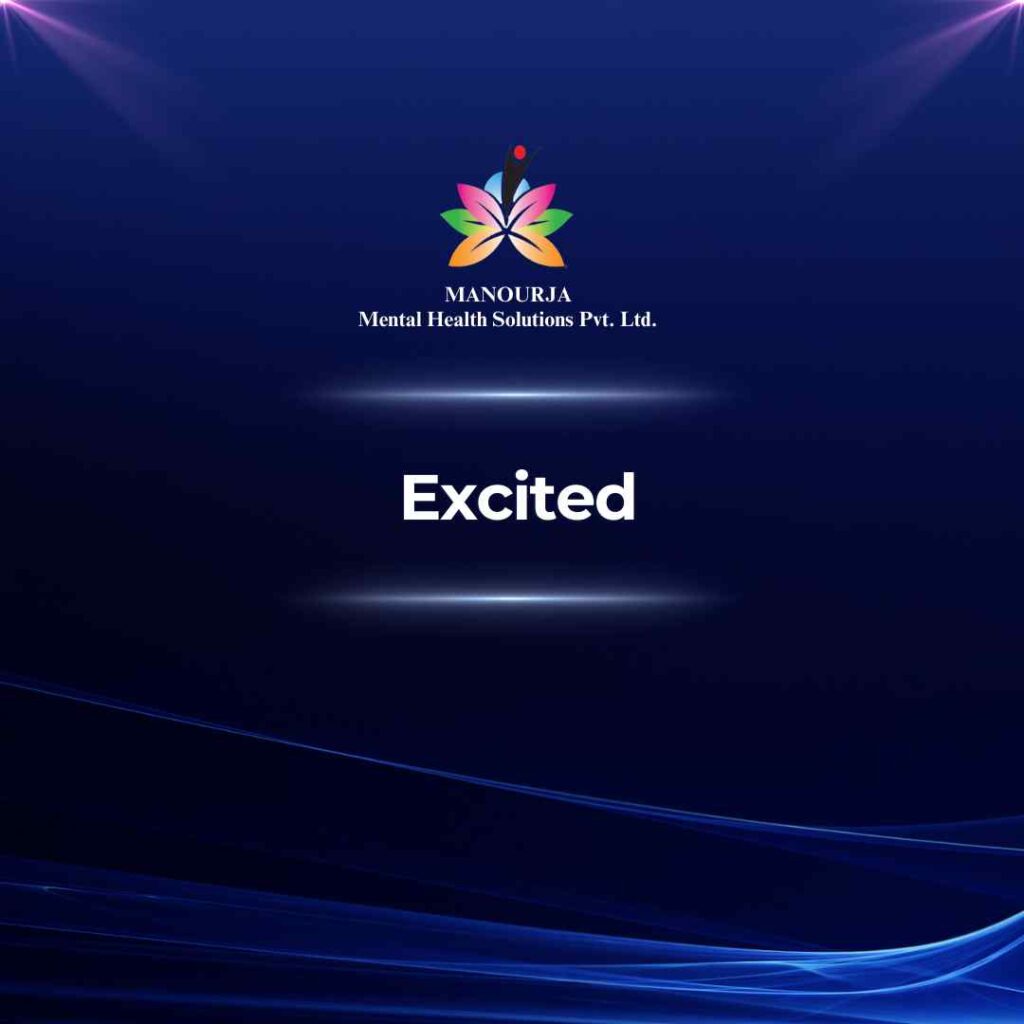Excited

In mental health, “excited” refers to a state of heightened arousal or agitation. This can involve increased energy levels, restlessness, impulsivity, and sometimes euphoria. Excitement may present as a symptom of several mental illnesses, each with distinct characteristics and implications.
Excitement as a Sign and Symptom of Mental Illness
- Mania: Excitement is a hallmark symptom of mania, which is a defining feature of bipolar disorder. During manic episodes, individuals experience heightened excitement along with increased energy, decreased need for sleep, rapid speech (pressured speech), racing thoughts, and sometimes grandiose beliefs about their abilities or importance.
- Hypomania: Similar to mania but less severe, hypomania also involves heightened excitement and increased energy. It can occur in bipolar disorder type II or in the context of other mental health conditions.
- Psychosis: In psychotic disorders like schizophrenia, excitement can manifest as part of a psychotic episode. This may include agitation, delusions of grandeur or persecution, hallucinations, and disorganized thoughts or behaviors.
- Generalized Anxiety Disorder (GAD): While typically associated with anxiety and worry, some individuals with GAD may experience periods of heightened excitement or restlessness as part of their anxiety symptoms.
- Substance Use Disorders: Excitement can also be induced by substance intoxication, such as stimulants like cocaine or methamphetamine, which increase arousal and energy levels.
- Attention-Deficit/Hyperactivity Disorder (ADHD): In ADHD, excitement can present as hyperactive behavior, impulsivity, and an inability to stay still or focused, particularly in children and adolescents.
Managing Excitement in Mental Illness
Management of excitement depends on the underlying condition:
- Medication: Mood stabilizers and antipsychotic medications are often used to manage excitement in bipolar disorder and psychotic disorders.
- Psychotherapy: Cognitive behavioral therapy (CBT) and psychoeducation can help individuals learn to recognize and manage symptoms of excitement.
- Lifestyle Changes: Establishing a regular sleep schedule, engaging in physical activity, and reducing stress can help stabilize mood and energy levels.
- Support Network: Building a supportive network of family, friends, and mental health professionals can provide encouragement and assistance during episodes of excitement.
Conclusion
Excitement in mental illness can range from euphoric highs in manic episodes to restless agitation in anxiety disorders or psychosis. Identifying the underlying condition and implementing appropriate treatment strategies are crucial in managing excitement and promoting mental health and stability.
At MANOURJA, we believe in the transformative power of counseling. Our experienced therapists offer a safe and supportive space where you can explore your thoughts, emotions, and challenges. Through personalized counselling sessions, we’ll work together to develop coping strategies, build resilience, and achieve lasting positive change. Discover the path to a healthier, happier you with MANOURJA counselling services.
MANOURJA Rehabilitation Services
At MANOURJA, we’re dedicated to helping you in rebuild your life, after difficult times. Our rehabilitation services focus on understanding what you need to move forward, whether you’re recovering from addiction, trauma, or any psychological – social challenges. We create personalized plans, that are all about helping you, regain your strength and find hope again. With a caring team by your side, you’ll have the support to make real progress and take steps toward a brighter, healthier future.
